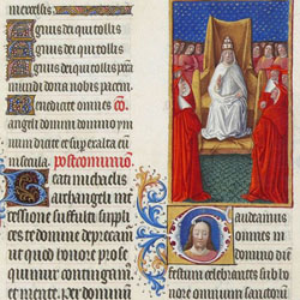
| Trackimage | Playbut | Trackname | Playbut | Trackname |
|---|---|---|---|---|
| 83350977 | Play | Danza alta | 00:00 Tools | |
| 83350978 | Play | La Spagna: Danza Alta | 00:00 Tools | |
| 83350980 | Play | Justa fue mi perdicion | 00:00 Tools | |
| 83350981 | Play | Alta | 00:00 Tools | |
| 83350982 | Play | La Alta | 00:00 Tools | |
| 83350984 | Play | Pampano Verde | 00:00 Tools | |
| 83350986 | Play | Danza Alta (instrumental) | 00:00 Tools | |
| 83350979 | Play | Danza Alta, Sobre La Spagna | 00:00 Tools | |
| 83350985 | Play | Danza alta, sobre "la Spagna": Danza Alta | 00:00 Tools | |
| 83350987 | Play | La Spagna | 00:00 Tools | |
| 90260980 | Play | Alta À 3 (Danza Sobre La Spagna) | 00:00 Tools | |
| 83350988 | Play | Adoramus te Domine | 00:00 Tools | |
| 83350992 | Play | Danza Alta Sobre La Spagna | 00:00 Tools | |
| 83350989 | Play | Danza alta, sobre 'La Spagna' | 00:00 Tools | |
| 83350990 | Play | Adorámoste, Señor | 00:00 Tools | |
| 83350993 | Play | Dime, triste coraçón | 00:00 Tools | |
| 83350991 | Play | La alta (Saltarello) | 00:00 Tools | |
| 83350994 | Play | Il Re di Spagna (basse danse-danza alta) | 00:00 Tools | |
| 83350995 | Play | Danza alta, sobre "la Spagna" [Cancionero musical de Palacio, 1490-1530] | 00:00 Tools | |
| 83350996 | Play | Danza alta, sobre "la Spagna": Alta | 00:00 Tools | |
| 83350997 | Play | Villancico "Adoramus te señor" | 00:00 Tools | |
| 83350998 | Play | La Spagna: Danza alta (instrumental) | 00:00 Tools | |
| 88586175 | Play | Danza Alta (Instrumental) [C. M. Palacio No. 321] | 00:00 Tools |

-
- 4,902
- plays
-
- 1,349
- listners
-
- 4902
- top track count
Francisco de la Torre, (¿1534 - 1594?), Spanish poet of the second phase of the Renaissance, from the School of Salamanca, not to be confused with the poet namesake of the first half of XVI. Almost nothing is known about his life and certainly more mysterious is the poet of the group of Salamanca. Nothing more than a sum of weak conjecture drawn from the evidence offered is the verse biography drafted by Aureliano Fernández-Guerra as speech entering the Royal Academy of Language in 1857. According to this author, Torrelaguna to be born in 1534, have studied at Alcalá de Henares and continued his military career in Italy to the end of his life made a cleric. A manuscript of his poems circulated in early seventeenth century with an approval of Alonso de Ercilla, who died in 1594, and drew the attention of Quevedo, who bought it together and edited the works of Fray Luis de Leon in 1631 to fight good examples of the excesses of classical poetry Culteranismo. Quevedo was concerned to investigate the author's manuscript, the bookseller who sold him with contempt, but could not get anything clean is more, it was "in five parts erasing the name of the author so carefully, adding that smoke the ink. When in 1753 José Luis Velázquez reprinted the works of Francisco de la Torre in Madrid thought that was really the author's own Francisco de Quevedo, the theory that modern criticism unanimously rejects from Manuel José Quintana in the nineteenth century. His works have been edited for modern Alonso Zamora Vicente Castellanos classics in the collection, in 1944, and there are other post no less remarkable. Read more on Last.fm. User-contributed text is available under the Creative Commons By-SA License; additional terms may apply.